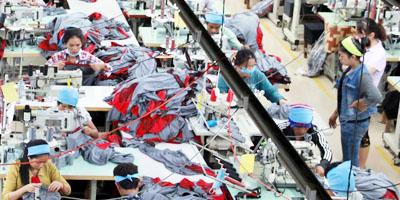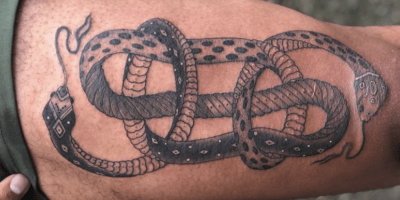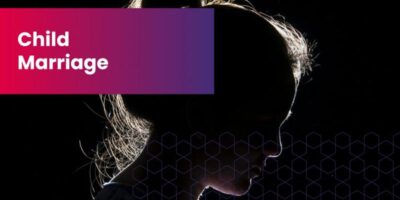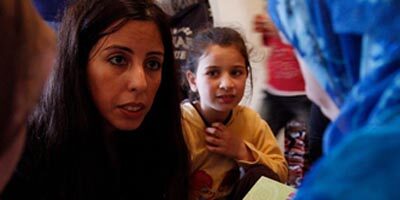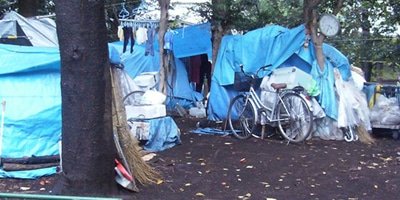
Walking along the road between Sudan and Uganda, near the Atiak IDP camp, I met this woman relaxing in the shade. She waved me over and whipped off the colorful cloth she had around her hair to reveal a full head of white. I had my camera, and we laughed over the pictures for a while. Most people don’t speak English that far north, so we ended up communicating by gestures and the few Lwo words I knew.
In Northern Uganda, people are divided over how they should seek justice for the actions of the Lord’s Revolutionary Army in the long civil war. The International Criminal Court, an attempt to establish an international norm that will dissuade future perpetrators, is considered slow and difficult. The alternative, mato oput, is a local cultural process first used by the Acholi people of the region to settle disputes between families. It consists of symbolic actions performed between perpetrator and victim followed by material compensation and clan reconciliation.
I discussed this with an elderly woman, wrapped in the bright yellow, blues and reds of her traditional clothing, in the Bobi Internally Displaced Persons (IDP) camp.
“I refuse to go home until Joseph Kony is dead or in prison,” she said, with fierce resolution.
She had lived in the camp for ten years with her children – and soon grandchildren – becoming increasingly dependent on food aid for survival, with no opportunities to earn money.
She did not believe that mato oput would hold accountable those who had engineered the war, and she did not believe that re-integrating former combatants into her society – particularly as government soldiers – was an appropriate response to the war.
She did not want to live side-by-side with former “terrorizers” as she put it.
Other people have a different perspective.
One evening, at the SOS Kinderdorf orphanage in Gulu, an young aspiring Acholi doctor named Charles sat with me and expressed his concerns about the ICC process.
“In our culture, when you have a disagreement with someone, the best thing to do is reconcile,” he said. “You don’t fight back, because you create more problems. Mato oput in Acholi culture means justice, and justice prevails in mato oput.” To him, mato oput could be considered as much a system of justice as the western-legal system is in Canada.
Another man joined in, saying that the Acholi people wanted peace and that the fastest way forward was through mato oput.
When I met them, I had been reading a book called “Trial Justice, the International Criminal Court and the Lord’s Resistance Army.” Author Tim Allen sums up the situation by describing mato oput as a re-emerging cultural tradition pushed by the church and intended to end the war as quickly as possible, by re-integrating former LRA soldiers and dismantling the IDP camps. On the other hand, he says, the ICC is the legal instrument of an international community wishing to end impunity of war criminals and show no tolerance.
Such are the two sides of the argument: cultural tradition and local reconciliation, or an international judicial system with the goal of discouraging guerrilla warfare on a global level.
At first, I could not understand the belief in the mato oput tradition. Reconciliation seemed too light a sentence for those responsible for abductions and killing. The war left 1.5 million Northern Ugandans living in IDP camps, their land razed and their lives torn apart.
Yet to many Acholi people mato oput represents an efficient system of reconciliation that both speeds up the processing of each perpetrator’s legal case and offers a “traditional” form of reconciliation. Proponents say that this gives the Acholi people themselves jurisdiction over the re-integration of former LRA soldiers into their communities. Some support mato oput out of tradition and familiarity, but there is also a generation which has not seen mato oput in practice, but believe it could work.
Young people especially nay be advocates of mato oput because they perceive the ICC as too slow, and that mato oput will speed up reconciliation with the LRA.

In Atiak IDP camp near the Sudan border. We were doing rounds for an NGO that facilitates HIV/AIDS drug distribution and consulting. The boy is eating some candies from one of the tiny shack stores that line the dusty market.
Also important to consider is that prosecuting LRA members by the ICC could also mean prosecution of Ugandan soldiers who policed the IDPs for rape and “crimes against humanity.” Since its initial support for the ICC process, the government has pulled back and now seeks a process of reconciliation.
The Acholi people aren’t the first faced with the challenge of establishing an internationally recognized system of legal prosecution within their cultural practices.
After the genocide in Rwanda, the government struggled to hammer out the gacaca ceremony, a prosecution system that has prisoners confess and discuss their crimes in front of community members witness to a perpetrator’s actions. After the ‘confession’, the community and a panel of judges decides on a sentence for the prisoner.
The gacaca ceremony has been recognized as effective to clearing up the backlog of cases that could have been sent to the International Criminal Tribunal for Rwanda (ICTR) and in establishing effective punishments for criminals involved in the genocide.
In Uganda, those who advocate mato oput hope that communities will re-integrate perpetrators without post-ceremony violence. They would like LRA soldiers and those it abducted to find new homes in Ugandan instead of continuing as soldiers in an armed militia in the jungle.
The creation of a database of statistics on the opinions of individuals in the war torn region will allow non-governmental organizations and the Ugandan government itself to establish to what immediate degree the ICC or mato oput is welcome into the northern communities.

